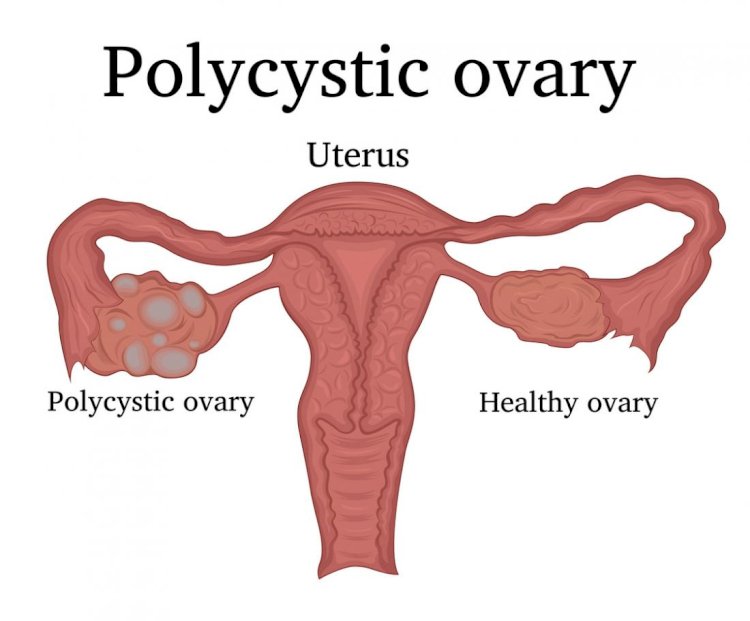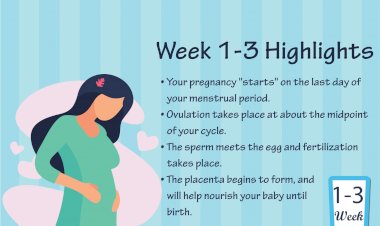How Polycystic Ovary Syndrome (PCOS) Affects Infertility?

How Polycystic Ovary Syndrome (PCOS) Affects Infertility?
PCOS, Polycystic ovary syndrome is a type of condition which affects women’s hormonal levels. Women suffering from PCOS generally produce high hormones in amount of male hormones. This kind of hormonal imbalance causes women’s to skip menstrual period and make it harder for ladies to get pregnant. This problem even causes hair growth on body and face and baldness. This can also contribute to much long term health related issues such as heart problem and diabetes. But, this problem can be fixed with diabetes drugs and birth controlling pills.
PCOS affects women during childbearing period from age of 15 to 44. 2.2 to 26.7 percent of ladies suffer from PCOS especially in this age group. In fact, most of the ladies suffer from PCOS but they don’t know about it. This problem affects ovaries of woman’s which produce progesterone and estrogen, hormones regulating menstrual cycle. These ovaries even produce small amount of male hormone known as androgens.
Ovaries also release eggs which are fertilized by man’s sperm. Thus, release of an every month is known as ovulation. Overall, PCOS is a group of symptoms or syndrome which affects ovulation and ovaries. The three important features of this syndrome are -
- High level of male hormones
- Cysts in ovaries
- Skipped or irregular periods
How PCOS can be diagnosed?
- Question about other family members or they have same symptoms or suffering from it.
- Ask your doctor about your health and menstrual cycle.
- Go for a physical examination which includes measuring body mass index, waist size and skin.
- Examination of different reproductive system and your genitals.
- Go for blood test so as to check blood sugar levels and hormone levels.
Causes of PCOS - Doctors don’t know the exact reason of PCOS, but from its symptoms this problem comes with natural body chemicals or hormones. Most of the ladies with PCOS have much insulin which helps in turning food into extra energy. Extra insulin cause your skin darkened behind your knees, on neck or other places. In fact, girls with extra androgens also have PCOS. This leads to excess hair on body, irregular periods, acne, weight gain and more.
What is infertility?
Infertility is a situation in which couples are not able to conceive even after having regular sex without any protection. It can be because of single partner as he or she may not be able to contribute to conception, or a woman is not able to carry pregnancy. Infertility is often known as not conceiving even after regular sexual intercourse after 12 months and without using any method for birth control. There are many causes of infertility some of the common causes include advancing maternal age, tubal occlusion, ovulation disorder, endometrial polyps, endometriosis, sperm functions, uterine fibroids and many more.
How to treat infertility?
There are several ways through which infertility can be treated effectively and within time. Here are some of the popular methods which can be considered -
Clomiphene citrate: First line treatment - CC treatment for treating fertility is first choice of many ladies for ovulation induction. This is a kind of drug and is an estrogen receptor modulator that can act as an antagonist or estrogen agonist. Although, it’s working mechanism is controversial but it can help in achieving beneficial results.
Insemination - This treatment is also known as IUI and is a process through which sperm is prepared and washed placing into uterine cavity, by passing cervix and bringing high concentration of sperm closer to ovulated egg and tubes. In order to accomplish, semen is then washed with solution safe to eggs and sperm and then centrifuges to separate sperm from other cells.
Conclusion - Therefore, if you are thinking that you might have PCOS, then it is advisable to seek or consult your doctor. This will help in overcoming stress, anxiety and depression related issues as doctor tells you exact problem and measures to overcome it.





































Comments (0)